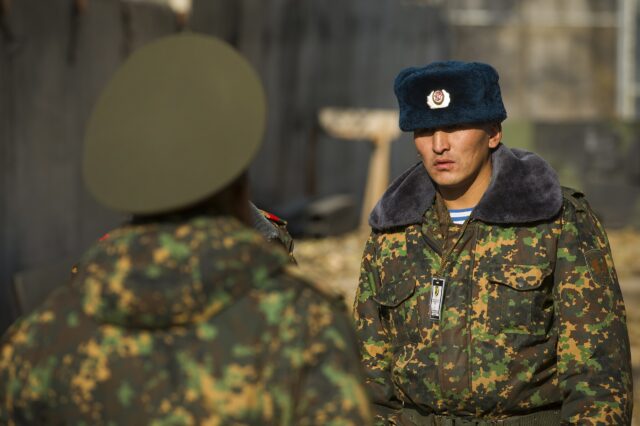Kyrgyzstan security forces eliminated a terrorist near Bishkek: why does it matter?

The Kyrgyz special operation to arrest an armed group in Dmitrievka, which resulted in the elimination of a suspected terrorist who fought in Syria, highlighted that Kyrgyzstan is not immune to terrorism or jihadist propaganda.
Information background
According to the Ministry of Internal Affairs of Kyrgyzstan, on May 17th, 2023, in the village of Dmitrievka in the Chui region, Kyrgyz security forces eliminated a suspected terrorist who participated in hostilities in Syria.
Official sources reported that, during a special operation of the Kyrgyz Ministry of Internal Affairs and the State Committee for National Security to detain an armed group, security forces killed one of its members.
Dmitrievka is located 30 kilometres from Bishkek, the capital of Kyrgyzstan. The Spiritual Administration of Muslims of Kyrgyzstan denied the information about the seizure of a madrasa in the village of Dmitrievka. Reports about the seizure of the madrasah were spread by some media, citing residents and their own sources.
Scenario Analysis
Among the Central Asian republics, Kyrgyzstan has long been considered the most democratic country, even though corruption is widespread and political institutions are weak. After the political turmoil that follower the annulment of the Kyrgyz 2020 parliamentary elections, several Western organisations and institutions have expressed their concerns about the country’s democratic process.
During the October 2020 political crisis, Sadyr Japarov, a nationalist former Member of Parliament known for spending a long time in prison because of kidnapping charges, arose to power holding for a short term both the role of acting president and prime minister. Currently, Japarov is the President of Kyrgyzstan after the January 2021 presidential elections while, since October 2021, Akylbek Japarov is the Kyrgyz Chairman of the Cabinet of Minister.
Despite the infrequent terrorist incidents in Kyrgyzstan, approximately 800 Kyrgyz nationals have gone to Syria and Iraq to join the Islamic State or other terrorist organisations. Over 200 are estimated to have died in Syria. In 2016, Kyrgyz lawmakers approved legislation allowing the authorities to deprive those convicted of terrorism of their citizenship.
Kyrgyzstan and the terrorist threat: why does it matter?
The counterterrorism operation in Dmitrievka brings to light the terrorism problem in Kyrgyzstan. Even though the country has not recently registered violent attacks, because of hundreds of Kyrgyz citizens joined the rank of the Islamic State, Kyrgyzstan is not immune to jihadist propaganda or terrorist groups’ activities.
Freedom House has ranked Kyrgyzstan as a ‘not free’ country since a constitutional referendum in 2021 increased presidential authority, decreasing the parliament’s role. Major human rights concerns in Kyrgyzstan include torture and arbitrary detention, inadequate judicial independence, severe restrictions on freedom of expression and freedom of the press, and corruption.
The lack of freedom and the Government’s crackdown against political opposition might create a fertile ground for jihadist propaganda, especially that of the Islamic State. Indeed, since 2021, the Islamic State Khorasan Province (ISKP) has been increasing their propaganda output by directly targeting regional countries calling for attacks against local governments and jihad in Central Asia.
On the other hand, as Human Rights Watch stressed in a report, new judicial cases showed that the Kyrgyz authorities have continued to prosecute people under the vague definition of extremism in the legislation, which can recognise such non-violent actions as ‘humiliation of national dignity’, not reaching the level of a threat to national security ‘hooligan acts and acts of vandalism’, as well as the distribution of extremist materials.
2022 events in Kazakhstan, Gorno-Badakhshan and Karakalpakstan have shown how Central Asian governments can use the terrorist threat or security concerns to control domestic politics and counter internal political opposition or citizens’ disappointment.
If the Bishkek government is exploiting extremism as a form of political contrast, this approach could magnify internal political vulnerability and prompt citizens towards radicalisation in the light of the reduction of citizens’ freedoms and rights in recent years.
Author: Giuliano Bifolchi
For further information, analyses, and risk report on Kyrgyzstan, do not hesitate to contact us at info@specialeurasia.com.
